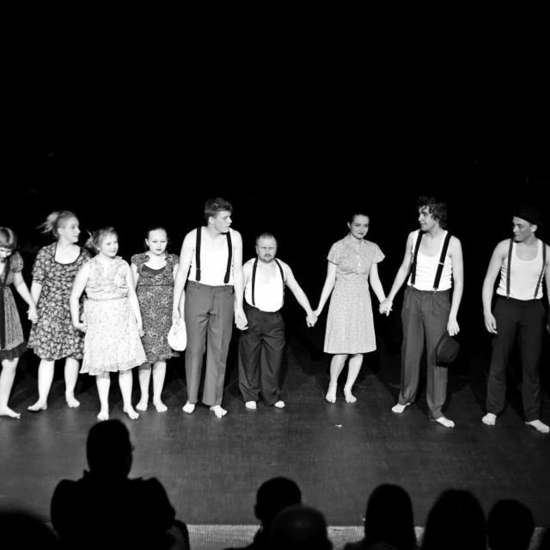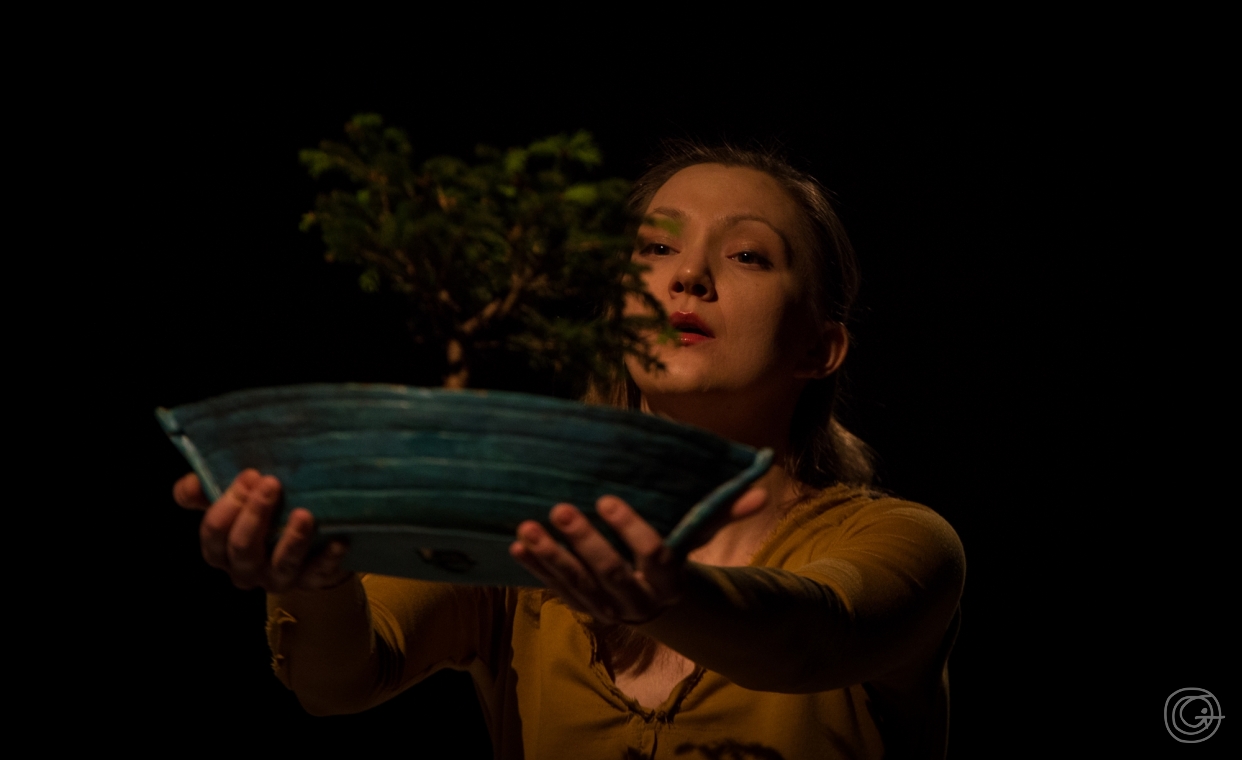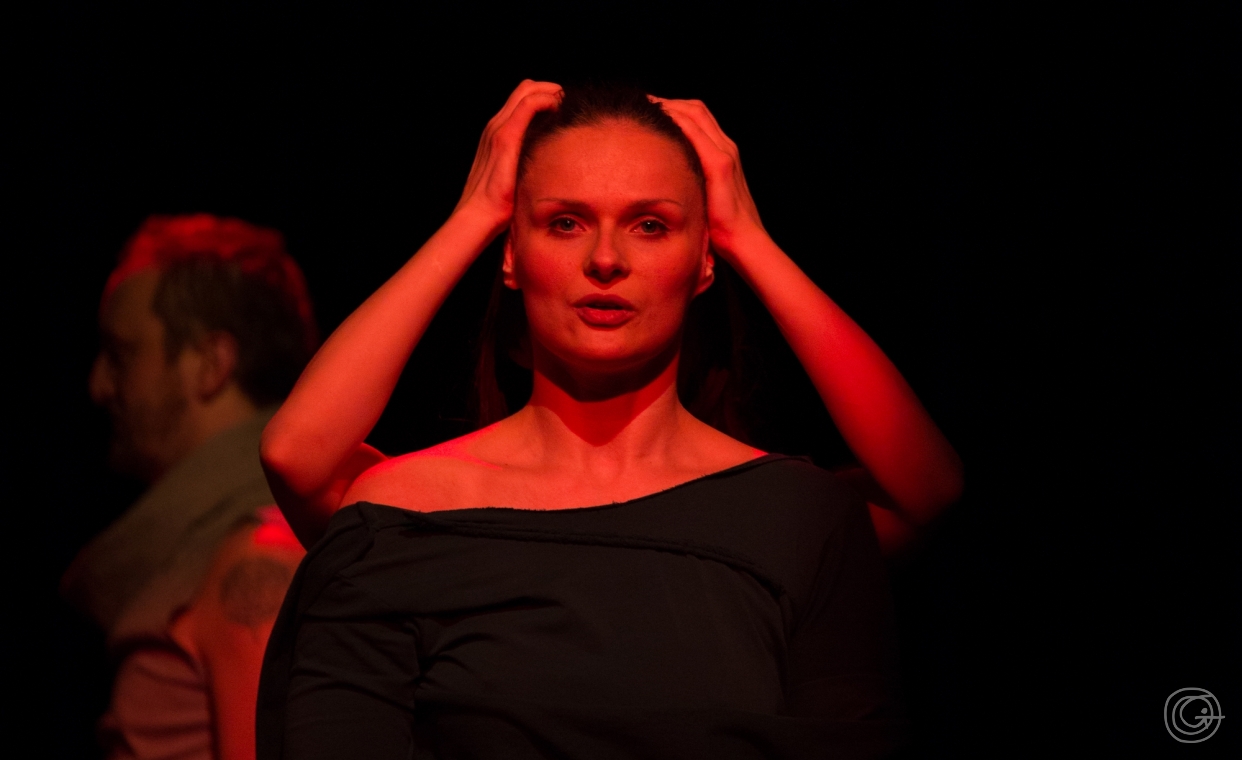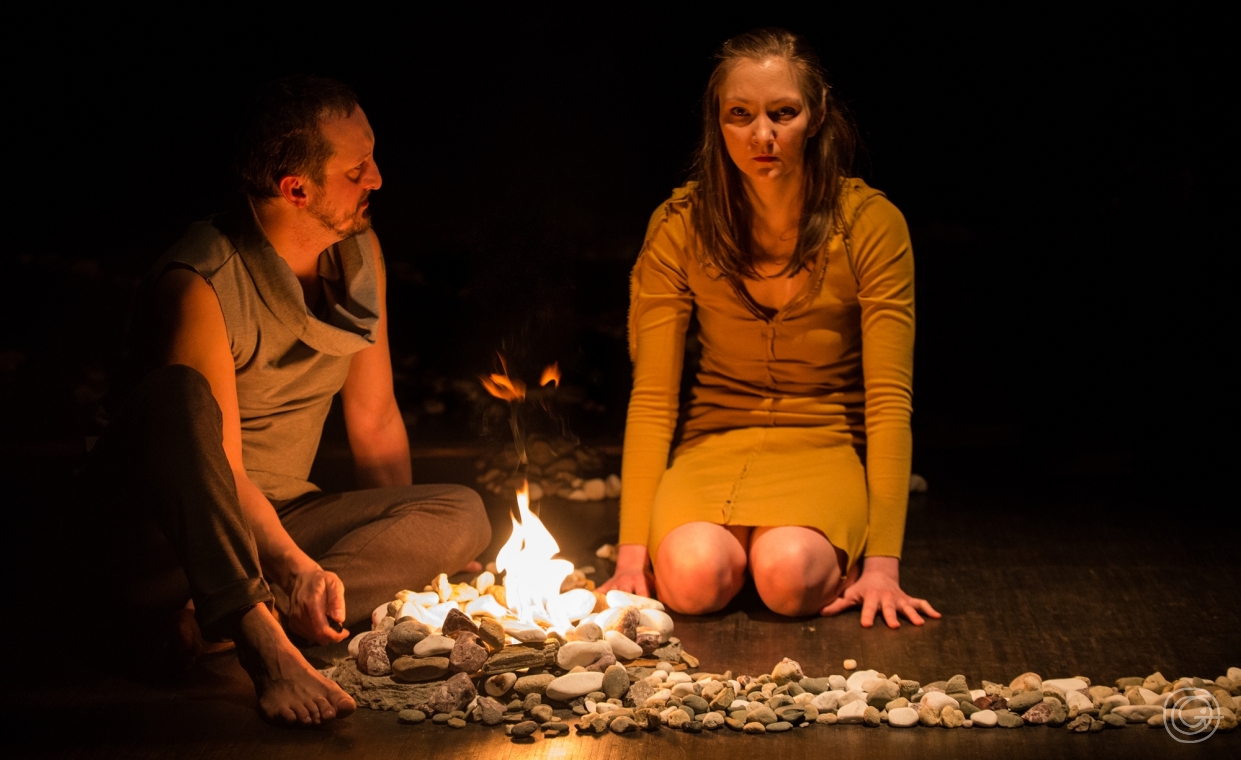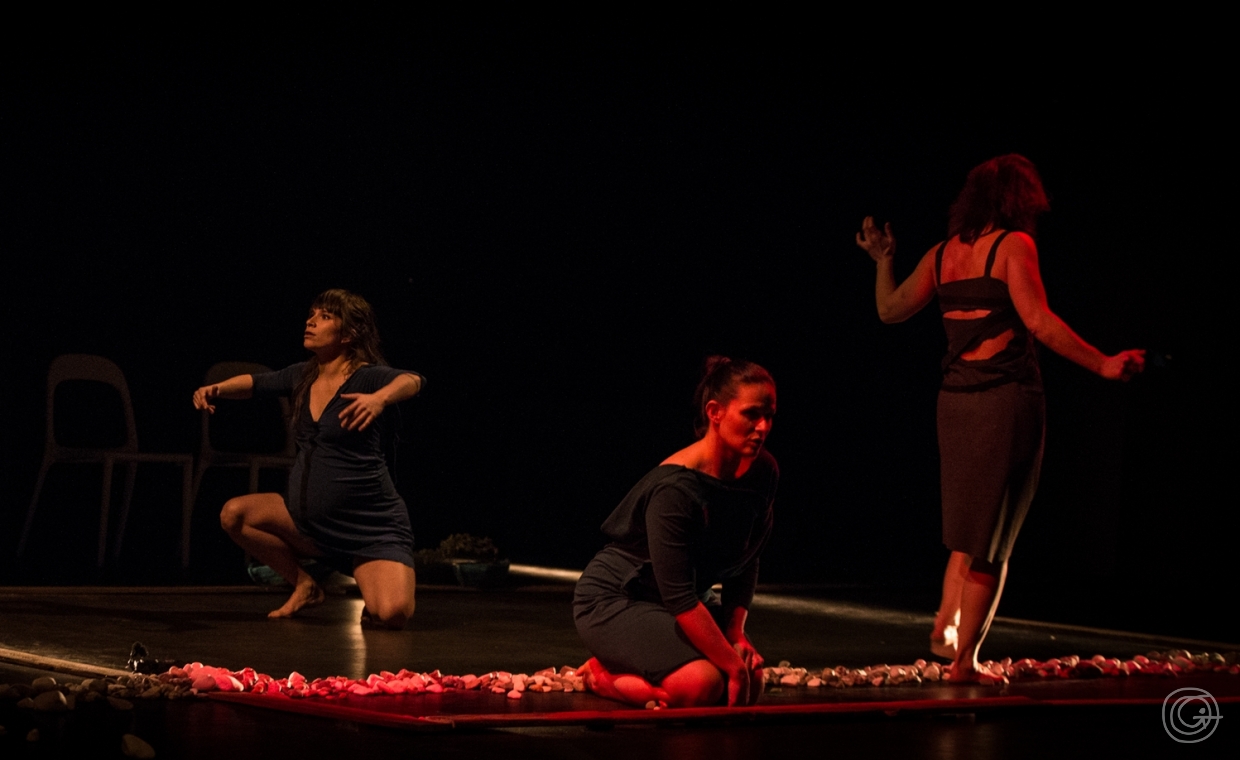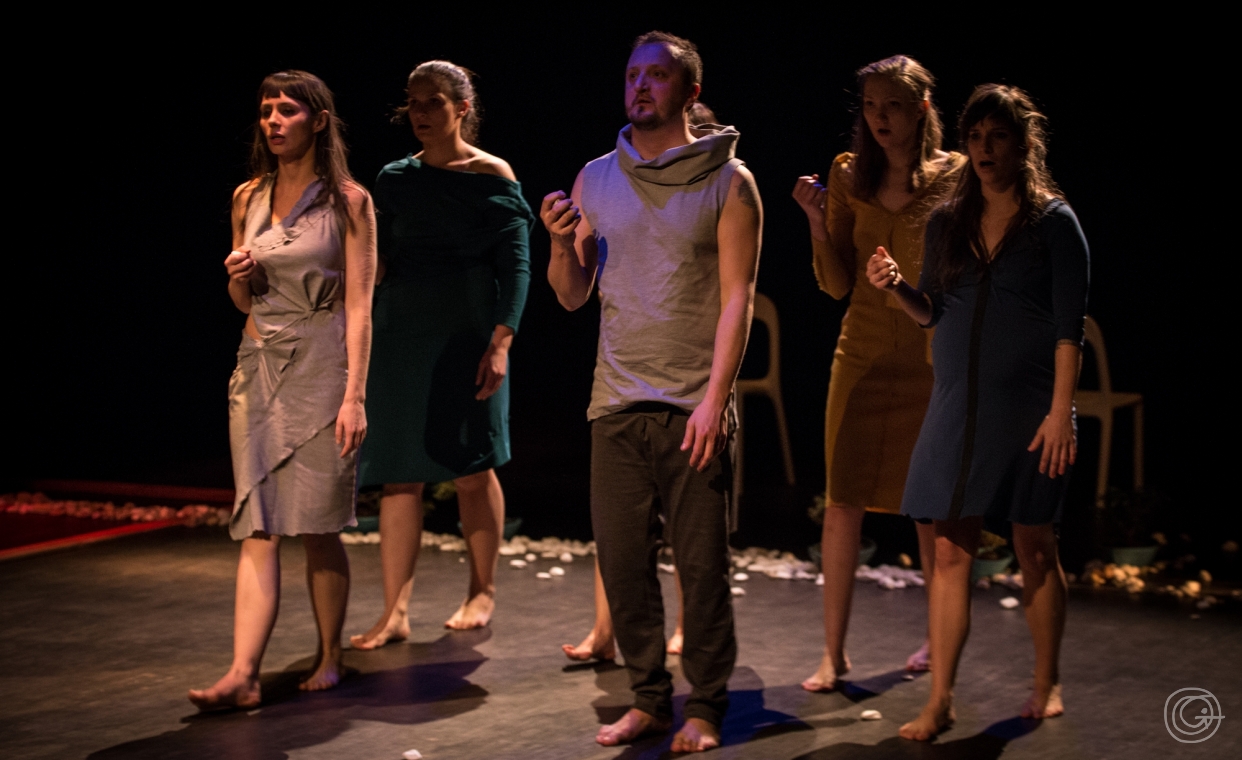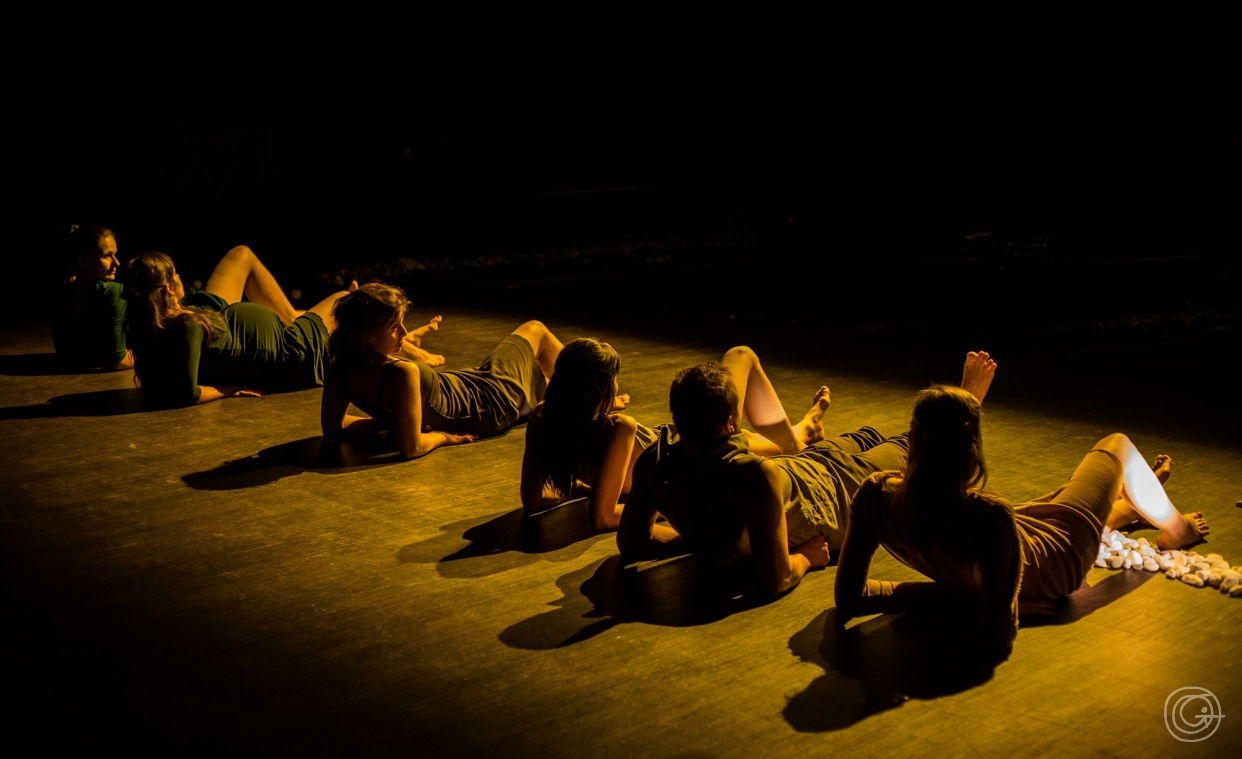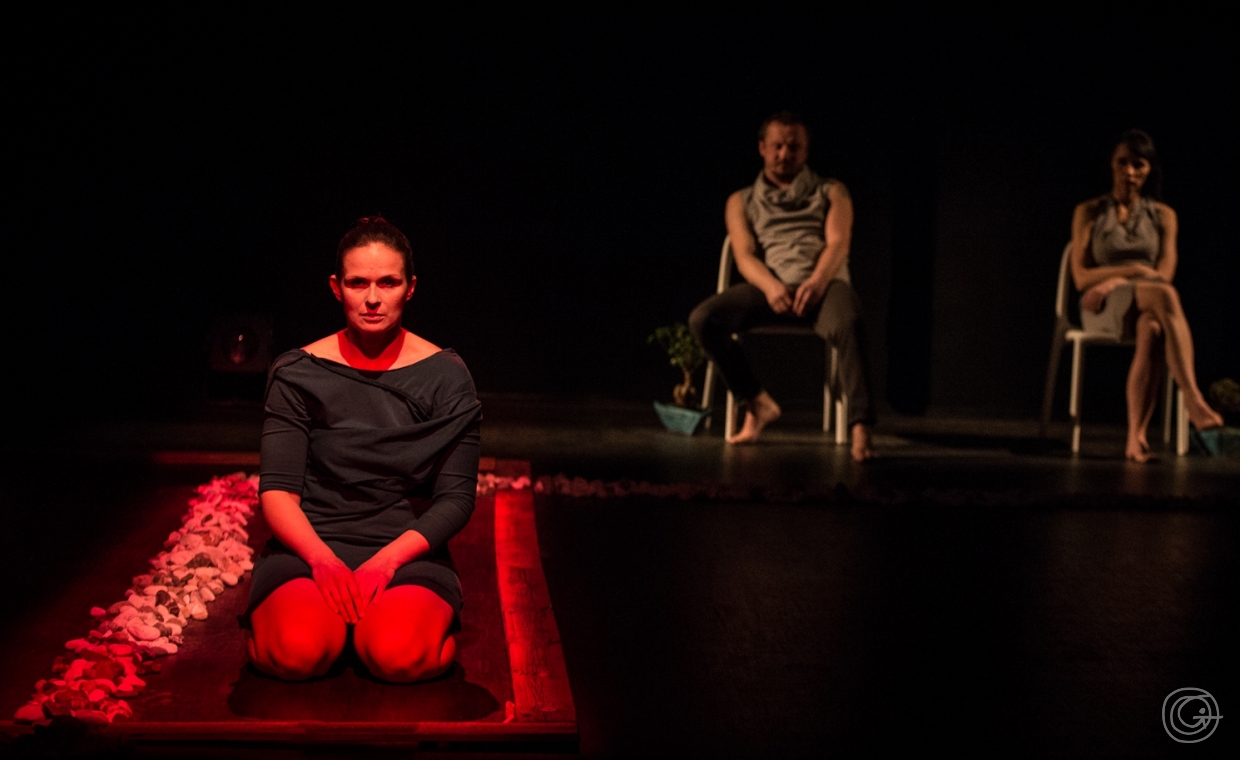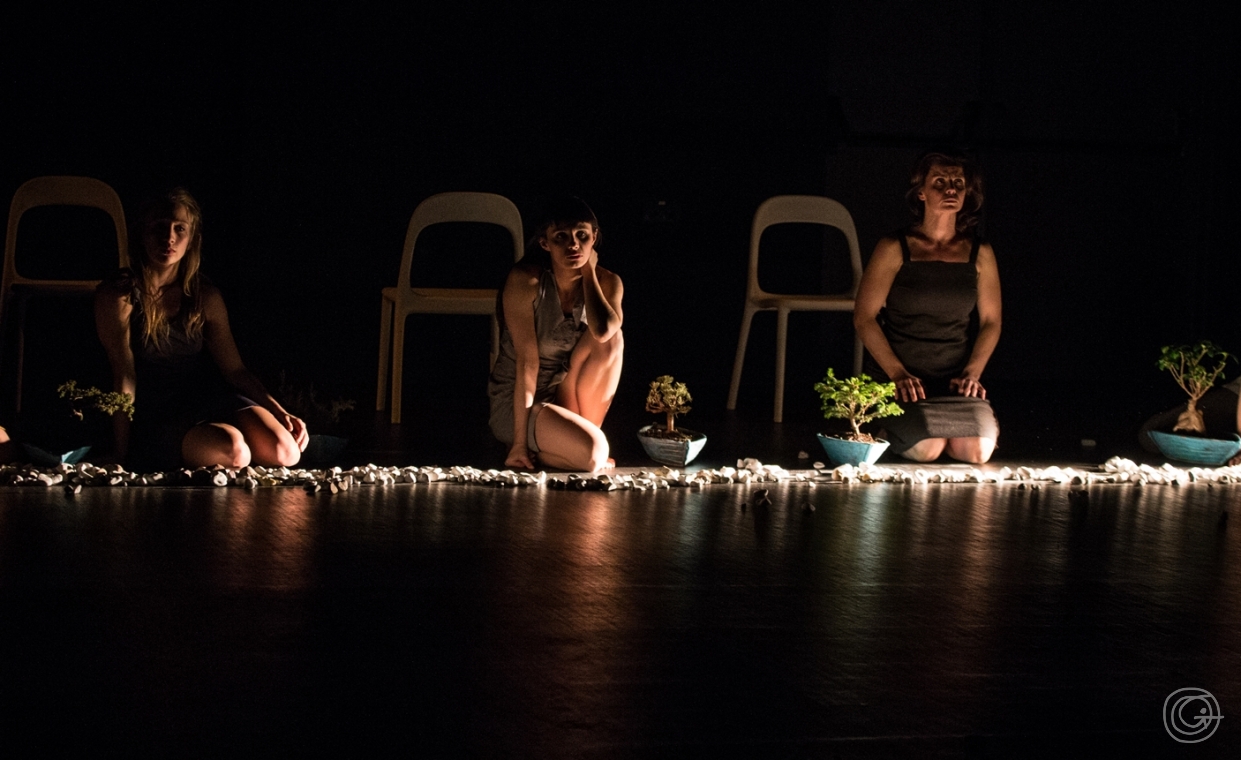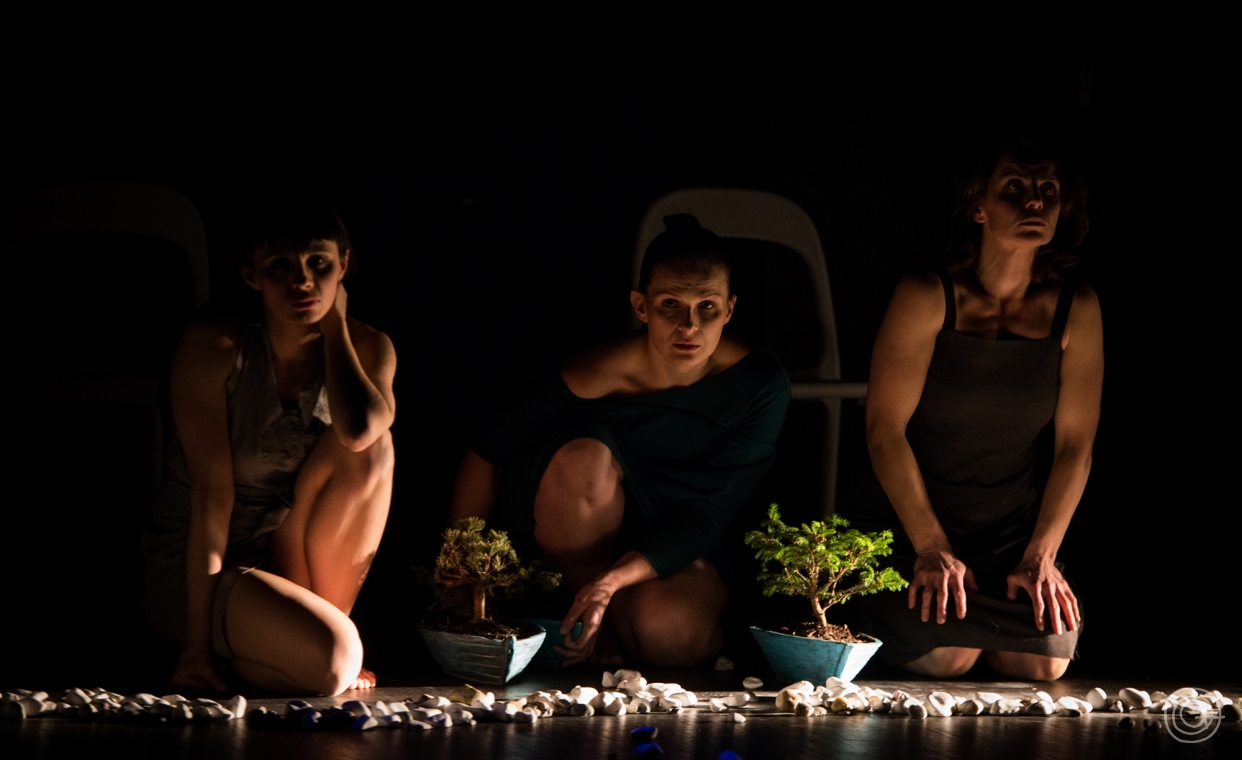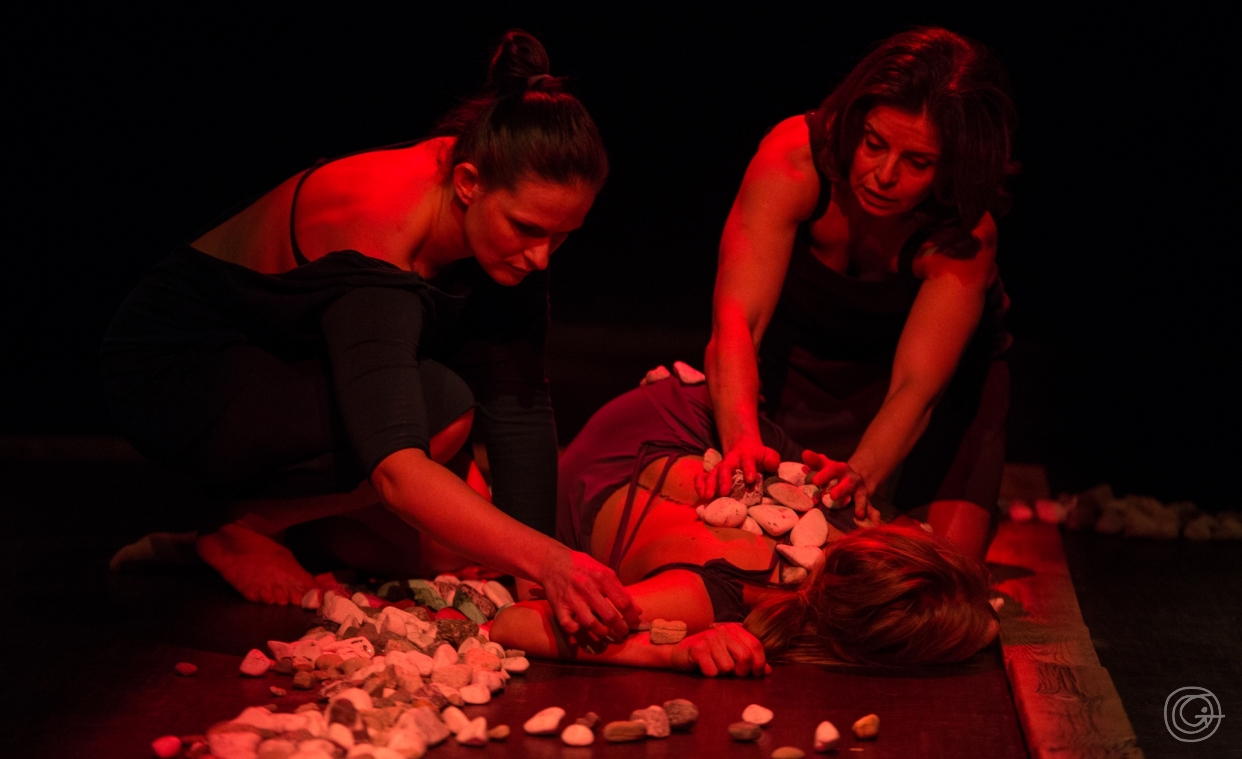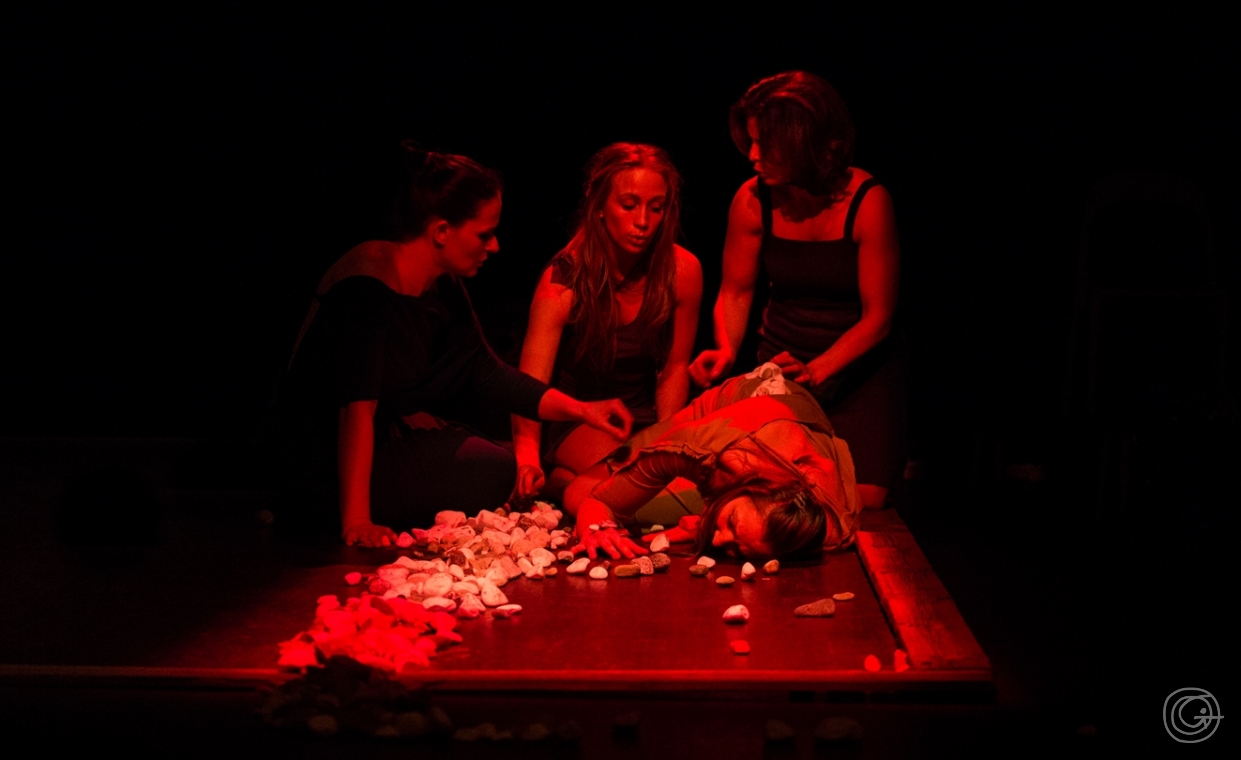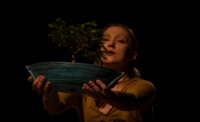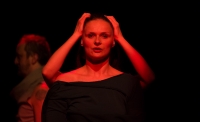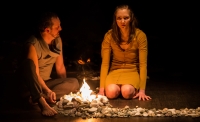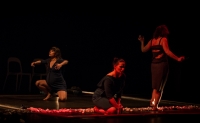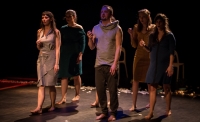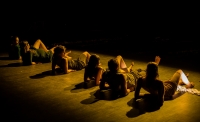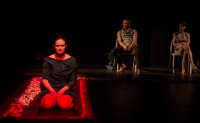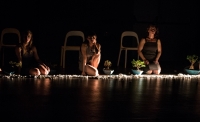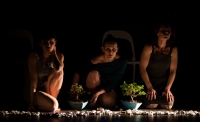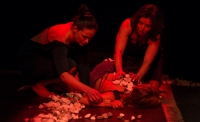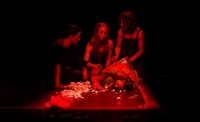Description
This is not a performance about refugees who have suddenly lost the roofs over their heads and have to head out into the unknown. This is not a performance about those who know where they come from, but don’t know where they are going. This is not a performance about people who have lost their loved ones but still want to live. This is not a performance about those who are losing everything but still hope they will be able to start their lives anew.
The Crack is a performance about you, about us, who have roofs over our heads and plenty of food to eat, but who do not yet realise that we can lose it all, at any moment; that suddenly we can be thrown into the unknown. This performance is about our fears and about finding hope. And about the fact that each one of us is, was, or one day will be a refugee, usually not of our own free will.
Six women and one man try to tell, through words, movement and singing, very ordinary stories of people who have lost everything, and have nothing left but hope. Hope, which sometimes turns into a survival instinct, and sometimes into an acceptance of its loss.
- CHOREA Theatre
- Direction and stage design ― Tomasz Rodowicz
- Text ― based on the text of the Norwegian playwright Arne Lygre, translated by Elizabeth Frątczak-Nowotny, and using fragments of poetic texts written by Rumi
- Performers ― Janusz Adam Biedrzycki, Joanna Chmielecka, Majka Justyna, Dominika Krzyżanowska-Gorzkiewicz, Małgorzata Lipczyńska, Elina Toneva
- Choreography ― Adrian Bartczak
- Music ― Tomasz Krzyżanowski
- Costumes ― Anna Raczkowska
- Light ― Tomasz Krukowski
- Sound ― Marcin Dobijański
- Partner ― Art Factory in Łódź
- Premiere ― 31 March 2016
-
Rodowicz’s The Crack […] is steeped in many different traditions and arts. It resembles an erudite synthesis of cultural quotes and references like the work of the poet and playwright T.S. Eliot. Ethnic singing, movement and dance, the delivered text, the gradual destruction of the foundations of a house (lightly-coloured stones are set in lines) and the relationships between these elements – all this is arranged into a stage poem marked by distinct rhythms.
Łukasz Kaczyński | Dziennik Łódzki
-
Rodowicz employs stones, which are used to build houses but also to erect walls. The final scene brings to mind collapsing barriers – since walls not only serve as a protection but they also separate. In this case destruction brings hope. [...] The Crack concludes with the discovery of a Human Being – a woman and a man will fall in love in the ruins of the old world. It is not important if the person is male or female, the important thing is to discover a fellow human being that you are ‘close to’. […] Rodowicz goes beyond the existential situation of an individual, demonstrating that we are all one.
Izabella Adamczewska | Gazeta Wyborcza
Information
Date and hour
Venue
Running time
90 minutes
Language
Polish
Surtitles
English

